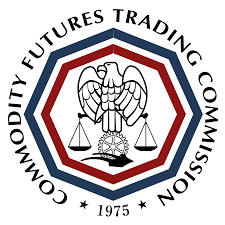 Investigating spoofing has become a greater priority in the Commodities Futures Trading Commission (CFTC) under President Trump.
Investigating spoofing has become a greater priority in the Commodities Futures Trading Commission (CFTC) under President Trump.
The CFTC Department of Enforcement (DOE) recently published its 2019 Annual Report; the fiscal year ended on September 30, 2019.
In its introduction, the CFTC noted that spoofing was a priority, “When the commodities and derivatives markets are functioning well, producers are able to hedge the risk that this year’s output might not be as good as the last, which protects them and consumers against price increases. These markets allow companies and individuals to allocate capital more efficiently, which contributes to the growth of the broader American economy.
“But these markets will not function well if participants lack confidence in their integrity. That is why the Division has focused on detecting, investigating, and prosecuting misconduct that has the potential to undermine the integrity of the markets— misconduct like fraud, manipulation, spoofing, and other forms of disruptive trading.”
The numbers suggest that this is more than just words.
The CFTC said manipulative trading cases- of which many are spoofing- increased more than three times.
“In addition, FY 2019 continued the upward trend in filings involving manipulative or disruptive trading. During FY 2019, the Commission filed more such cases than in any prior year other than FY 2018. From FY 2009 to FY 2017, the Commission filed, on average, approximately five such cases per year. In FY 2019, the Commission filed 16—over three times the prior annual average.”
The CFTC noted further, “In fact, approximately 65% of the matters filed in FY 2019 involved commodities fraud, manipulative conduct, false reporting, or spoofing.”
Indeed, the last two years have seen an exponential increase in spoofing cases brought by the CFTC.
Most recently, the CFTC nailed Mitsubishi Corporation RtM, a precious metals trading from Japan, for spoofing on the NYMEX.
Here is part of the press release from early November.
“The U.S. Commodity Futures Trading Commission today issued an order filing and settling charges against Mitsubishi Corporation RtM Japan Ltd. (RtM Japan) for engaging in multiple acts of spoofing contracts on the New York Mercantile Exchange for platinum and palladium futures. The order finds that RtM Japan engaged in this activity through an inexperienced trader who used a trading platform located in RtM Japan’s Tokyo office. The order requires RtM Japan to cease and desist and imposes a civil monetary penalty of $500,000.”
The CFTC has nailed traders and/or trading subsidiaries of heavyweight financial services firms JP Morgan Chase, Morgan Stanley, and Merrill Lynch in 2019 for spoofing.
In 2018, the CFTC charged traders at banks HSBC, Deutsche Bank, and UBS, in one investigation with spoofing.
The CFTC said another enforcement priority was parallel enforcement actions. The CFTC noted in its annual report, “Our parallel enforcement program starts with the premise that we can most effectively protect our markets when working together with our colleagues in the enforcement and regulatory community. In particular, we believe a robust combination of criminal prosecution and regulatory enforcement is critical to deterring violators, punishing misconduct, preserving market integrity, and protecting market participants.”
As The Industry Spread recently covered, the US Department of Justice is currently charging a spoofing scheme under RICO, the Racketeer Influenced and Corrupt Organizations Act, a law to enhance penalties if criminal activities are determined to be part of a larger organized criminal enterprise.
Even as that case makes its way through criminal court, the CFTC has also gone after the same people civilly. Here is part of a press release from August 2019.
“The U.S. Commodity Futures Trading Commission today filed a civil enforcement action in the U.S. District Court for the Northern District of Illinois against Michael Nowak, of New Jersey, and Gregg Smith, of New York, charging them with spoofing, engaging in a manipulative and deceptive scheme, and attempting to manipulate prices in the precious metals futures markets while employed at a major U.S. bank. This case was brought in connection with the CFTC Division of Enforcement’s Spoofing Task Force.”
The CFTC was seeking a variety of financial penalties and trading bans.
Smith and Nowak are also charged with RICO criminally.
Here is part of a USDOJ press release, “The superseding indictment follows the original indictment filed on Aug. 22, 2019, which charges Gregg Smith, 55, of Scarsdale, New York; Michael Nowak, 45, of Montclair, New Jersey; and Christopher Jordan, 47, of Mountainside, New Jersey, with one count of RICO conspiracy; one count of conspiracy to commit wire fraud affecting a financial institution, bank fraud, commodities fraud, price manipulation and spoofing; one count of bank fraud and one count of wire fraud affecting a financial institution. Those original charges – as well as the original charges of one count of attempted price manipulation, one count of commodities fraud and one count of spoofing against Smith and Nowak – are incorporated into the superseding indictment.”
For this, they face jail time.
The Securities and Exchange Commission’s (SEC) Division of Enforcement released its own annual report earlier in November. The Industry Spread provided coverage here.
The CFTC regulates commodities and derivatives while the SEC regulates securities in the US.









